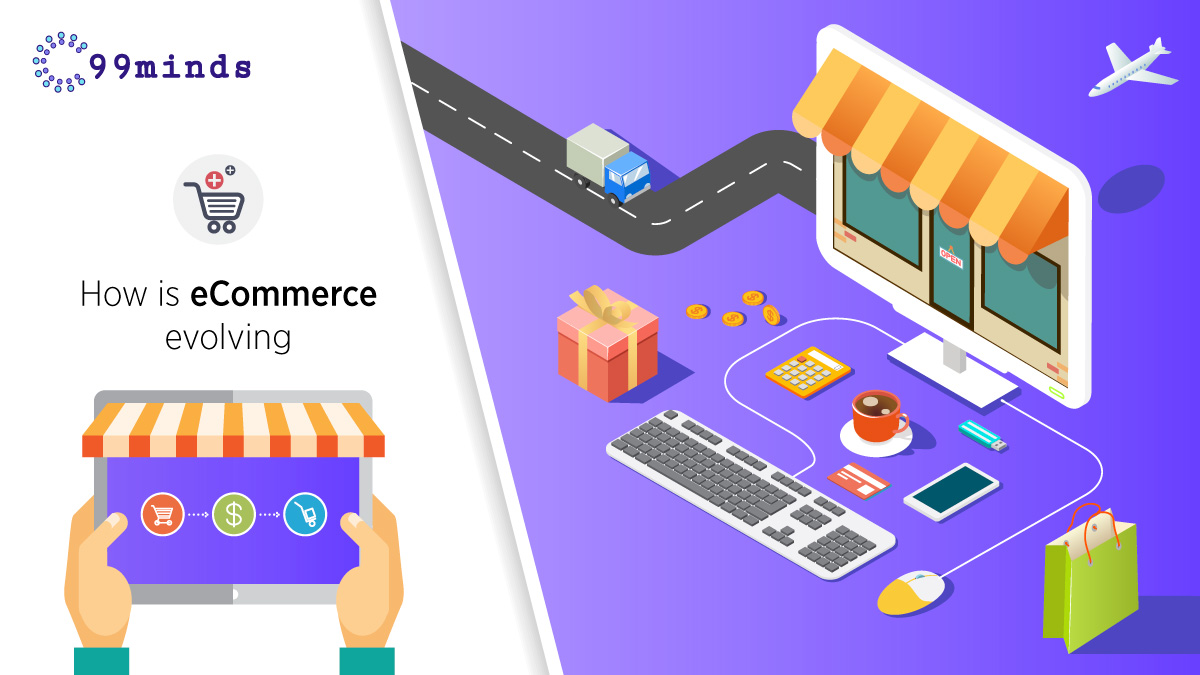
The world is clearly changing in so many ways. The way we used to watch movies, listen to music or travel to different places have completely changed in the past few years. The same is with eCommerce, it has become an important part of our lives too. If brands want to succeed in the eCommerce industry, then it has to concentrate on giving a superior experience for the customer.
eBay can be considered as the pioneer in making people use the internet to buy stuff, somewhere around 1995.
But it was Amazon which completely changed the tables for eCommerce with its online book store and then eventually transforming to become the ‘Everything store.’ Today, the market cap of Amazon is 1,597.2 billion USD. It is also the most popular online retail website across the world in terms of traffic.
In 1996, there were over 40 million people who had internet access and the year brought in more than $1 billion sales from eCommerce.
The emergence of PayPal in 1998 was a game changer for the eCommerce industry since people could make payments online without a worry. In the year 2000, the revenue from online shopping was well above $25 billion.
2003 saw Apple launching the major digital store in the world- iTunes.
2005 saw the emergence of Cyber Mondays which became one of the biggest online shopping days of the year. The tradition still continues as the year 2020 brought in $10.8 billion sales on Cyber Monday, setting a record for the largest online shopping sales ever from the US.
Facebook started selling advertisements in 2006. Remember there was a time when pundits were predicting the death of the social media giant because they were not able to find ways to monetize the company. In 2020, Facebook’s revenue was 86 billion US dollars.
For the first time ever, people started making online purchases through their mobile phones in 2008. This changed eCommerce forever. Today, there are more people who are making online purchases from smart phones than from desktops.
In 2012, the online B2C sales crossed $1 trillion globally.
eCommerce sales have not only grown in terms of revenue, but it has also taken up a larger share of the total retail sales in the United States.
In 2020, the retail eCommerce sales worldwide reached 4.28 trillion US dollars. The number is projected to grow to 5.4 trillion US dollars in 2022.
By 2023, the eCommerce share of total global retail sales is expected to be 22%. It also implies that there is so much potential and the market is nowhere near saturation.
One of the biggest reasons why eCommerce is evolving is because of technology and social media.
People spend a lot of time on social media, and they use it to gather information, share their likes and dislikes and even make buying decisions from here. This is where social commerce becomes a big part of our lives. Facebook and Instagram have made it possible for small businesses to create their own storefront from where they can sell their products. The aim is to provide an end-to-end ecommerce experience without the customers having to leave the app.
Technology makes it possible to provide great experiences for eCommerce customers. From providing customers the convenience of buying essentials from one’s home to offering them a variety of choices that might have been impossible to experience by walking into a retail store, the benefits are endless.
Another way that eCommerce has evolved is through the emergence of small businesses cropping up and selling their wares using marketplaces such as Instagram, Facebook, Whatsapp groups, and more. Since there are a variety of services which enable small businesses, starting an eCommerce store has become relatively easy. For example, if you can make a viable and sellable product, finding vendors for packaging, shipping, payment service providers, etc., is going to be a breeze. Even the raw materials can be sourced easily as there are platforms from where you could find such service providers.
eCommerce has evolved to such an extent that you can even set up chatbots that will converse with your prospective customers on your behalf.
The leverage to automate so many functions of a business has made eCommerce an exciting industry which has become an inseparable part of our lives one way or the other.
Now that the eCommerce industry has matured significantly, most of the work lies on the particular online store. It is important that they refine their service, starting from the user experience on the website, making it easy to browse through their products, smooth buying process, seamless refunds, and so on. In this heavily competitive niche, eCommerce stores cannot afford to slack. Every conversation that a customer has with your brand has to end on a positive note for the former.
eCommerce is here to stay. It is impossible to imagine a world where we won’t get to buy products that we want by sitting at home. The evolution of eCommerce has mainly been because of technology and many of these technologies like Augmented Reality or Artificial Intelligence have not even been fully realized yet. Imagine the kind of revolutionary changes we would be able to see once these technologies perform at their maximum capacity.
For eCommerce stores that are looking to leverage technology, 99minds is here to tell you that we can increase the retention rate, thereby increasing your revenue with the help of our offering. 99minds creates customized customer loyalty programs for eCommerce stores. If you are looking to add a loyalty program to your brand’s mix, we are more than happy to get on a call and tell you how exactly we can be of help.